Bad governance
Nigerian Governors Splash Billions on Government Houses, Don’t Care About Their People – US Embassy
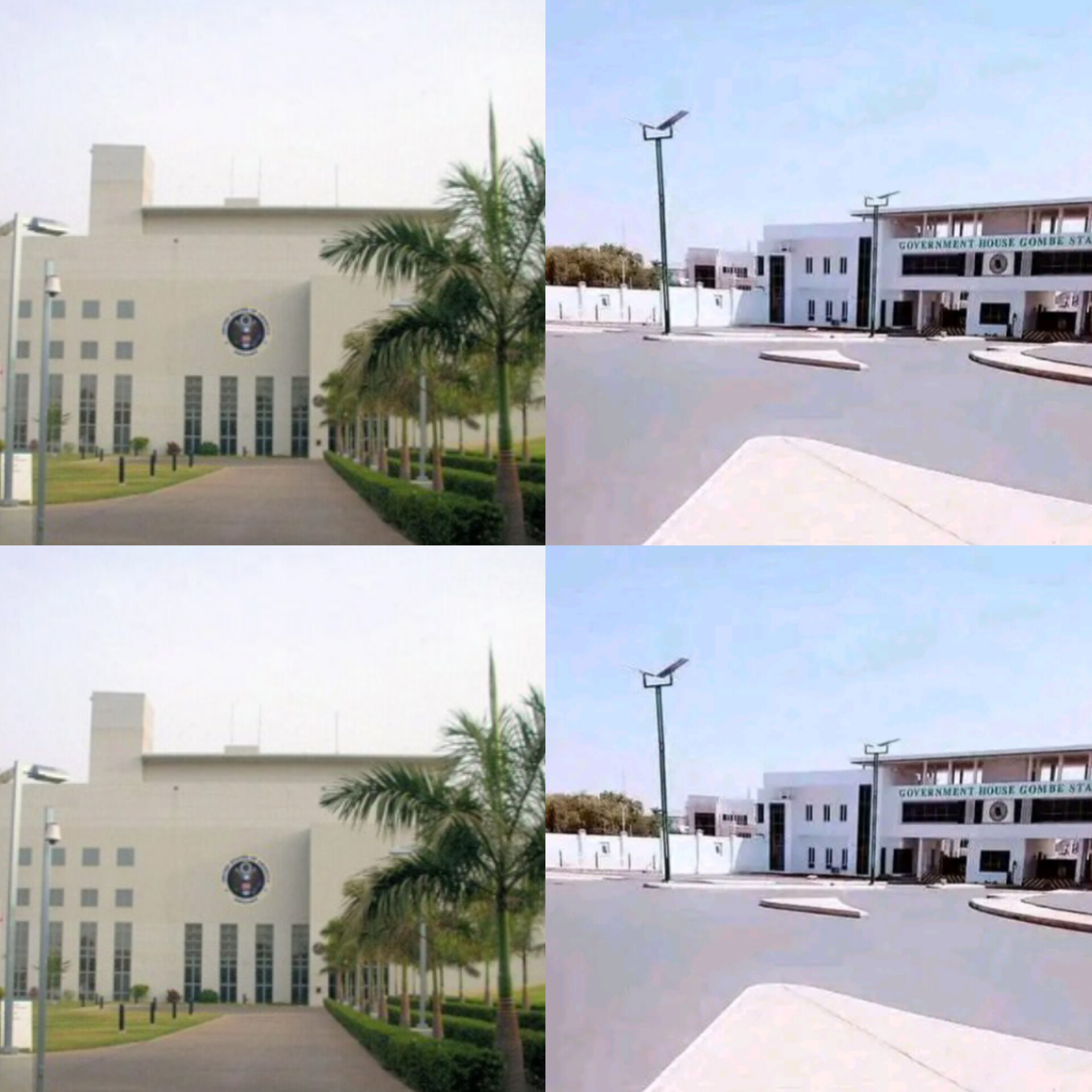
By Our Correspondent
The United States embassy in Nigeria has released a scathing report about Nigerian governors.
The US embassy accused governors of extravagant spending of public funds while citizens wallow in poverty.
The embassy stated this on Tuesday while sharing a report on the governors’ extravagant spending.
The report revealed how governors lavish billions on building or renovating government houses in the midst of the prevailing economic hardship plaguing the common man in the country.
It also said that while President Bola Tinubu asked Nigerians to endure the economic hardship resulting from his policies, the governors do not share in the sacrifice.
“While Nigerians are tightening their belts, the same cannot be said of the ruling class.
“Oyo State Governor Seyi Makinde’s administration approved N63.4bn for the renovation of the Government House, claiming it was an embarrassment and an unbefitting facility.
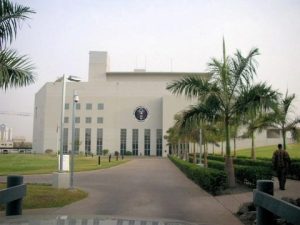
In Gombe, one of the poorest states in Nigeria, Governor Inuwa Yahaya committed N14.9bn for a new ultra-modern residence. Another N14.23bn is being spent on the House of Assembly complex,” the report read in part.
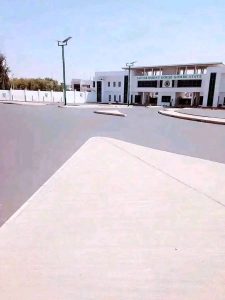
Reacting via its official X handle on Tuesday, the US embassy shared the link to the report alongside quotes from transparency and accountability advocacy groups.
“Such alleged lack of fiscal responsibility fuels inequality and erodes public trust,” the embassy wrote.
Bad governance
Street Girls, Empty Promises: IG Wala Slams 419 Billion Cash Transfer Mystery in Gombe
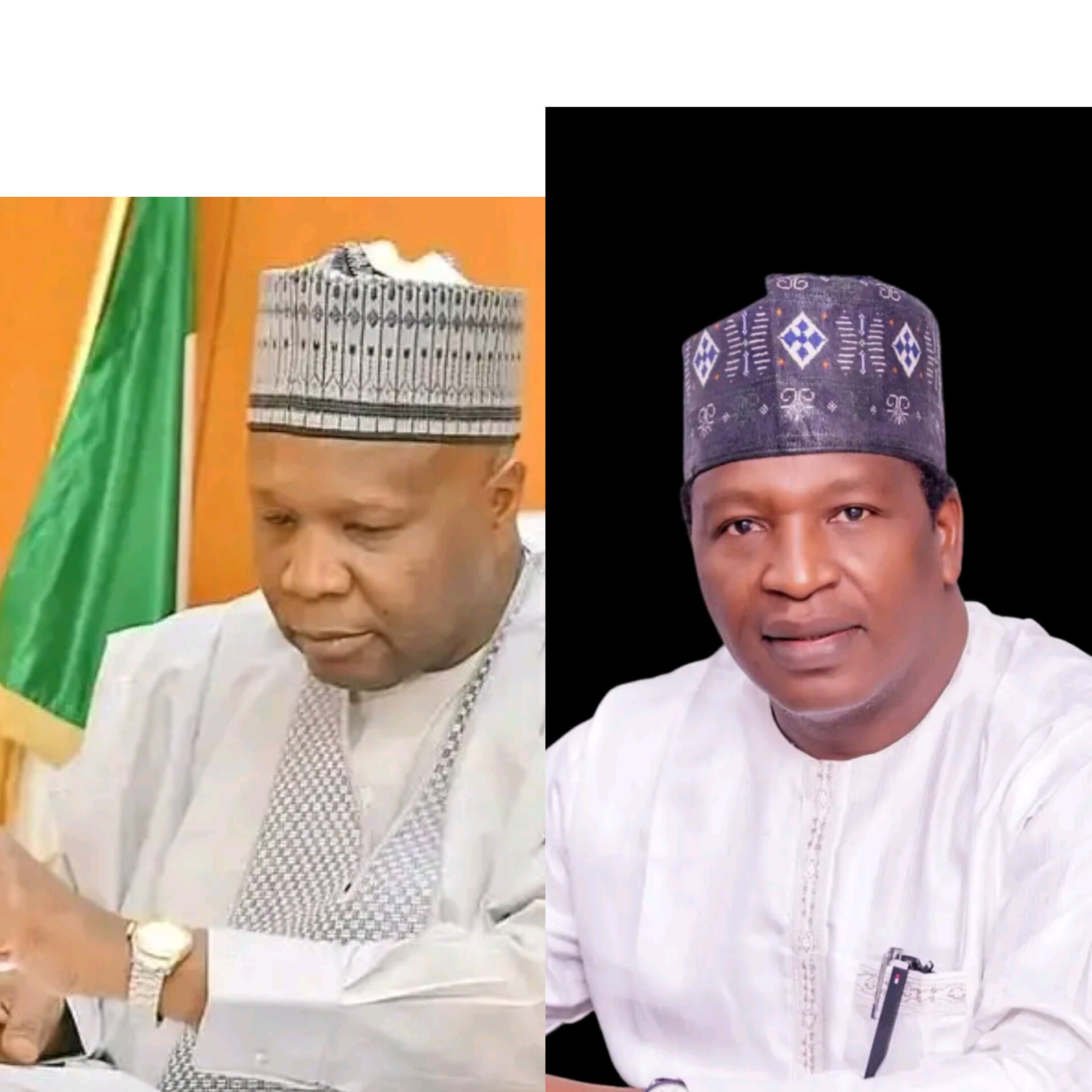
By Our Correspondent
Prominent activist and commentator, Ibrahim Garba Wala (IG Wala), has raised a thought-provoking concern over the ongoing beautification projects in Gombe State under Governor Muhammadu Inuwa Yahaya’s administration, warning that such efforts could amount to “mere window dressing” if pressing issues of poverty and human capital development remain unaddressed.
In a strongly worded statement, Wala lamented that despite the billions of naira reportedly spent on beautification and infrastructure, many young girls aged between 13 and 17 can still be found roaming the streets of Gombe in the early hours of the day, desperately seeking casual farm jobs to support their families.
“Beautification of Gombe State will be a window dressing if young girls of 13 to 17 years of age are on the streets in the early hours of the day seeking who to offer them casual farm jobs daily for their families to survive,” he said.
Wala urged the governor to redirect a significant portion of government spending towards human capital development, stressing that empowering families through targeted interventions would have a more lasting impact than physical projects.
He also questioned the transparency and inclusiveness of the Conditional Cash Transfer (CCT) scheme under the All Progressives Congress (APC) administration, which he said was worth ₦419 billion. According to him, there is little evidence on the ground in Gombe State to show who the actual beneficiaries of the scheme are.
“This brings us to the question: in Gombe State, who are the beneficiaries of the ₦419 billion Conditional Cash Transfers under the APC administration?” Wala asked.
The CCT programme, designed to provide stipends to the poorest and most vulnerable households across Nigeria, has faced repeated scrutiny over alleged lack of transparency, politicization, and uneven distribution of funds.
Analysts say Wala’s intervention echoes the concerns of many residents who argue that while physical infrastructure is important, tackling deep-rooted poverty, youth unemployment, and access to quality education remains central to sustainable development in Gombe State.
As the Yahaya administration continues its drive to transform Gombe into a model state in the Northeast, critics insist that the true measure of progress lies not in the number of beautified streets or roundabouts, but in how well the lives of ordinary citizens — particularly women, children, and vulnerable groups — are improved.
Bad governance
Not in Our Name, Senator Abdul Ningi Rejects Tinubu’s $21bn Loan After Senate Nod, Demands Full Disclosure

By Our Correspondent
In a dramatic pushback three days after the Senate approved President Bola Tinubu’s plan to borrow more than $21 billion from external sources, Senator Abdul Ningi has publicly rejected the facility, insisting Nigerians “can’t keep borrowing without knowing the details.” “Nigerians have a right to understand where this money is going,” he said, questioning the transparency of the package.
The Senate on July 23, 2025 endorsed the administration’s sweeping borrowing plan — $21.19bn in foreign loans alongside €4bn, ¥15bn, a $65m grant, and additional domestic borrowing — to help fund the 2025 budget and priority projects. Lawmakers who backed the plan stressed that the loans are concessional, spread over multiple years, and already embedded in the 2025 Appropriation Act and Medium-Term Expenditure Framework.
While many senators framed the borrowing as a strategic necessity to unlock infrastructure, agriculture, health, education, security and housing investments — including $3bn earmarked to revitalise the Eastern rail corridor — Ningi, an opposition lawmaker, said the chamber failed to give Nigerians the granular breakdown they deserve. During debate on the report of the Senate Committee on Local and Foreign Debts, he raised concerns over the absence of project-by-project clarity and the full borrowing terms.
“We need to tell our constituents exactly how much is being borrowed in their name, and for what purpose,” Ningi argued, doubling down in subsequent public comments after the approval.
Supporters say it’s procedural, long-term and lawful
Senator Solomon Olamilekan Adeola, chair of the Appropriations Committee, described the vote as largely procedural, saying the borrowing had already been “baked into” the budget framework — approval merely “connects the final dots” to fund the 2025 spending plan. Finance Committee chair Sani Musa added that disbursement would run for six years, not just 2025, aligning with “global best practice” on leveraging debt for growth. Tokunbo Abiru, who heads the Banking Committee, said the loans comply with the Fiscal Responsibility Act and Debt Management Act and come with favourable terms.
Why Ningi’s stance matters
Ningi’s refusal to align with the Senate majority sharpens an already heated national debate over Nigeria’s debt trajectory, debt-service pressures, and the opacity that often surrounds big-ticket borrowing plans. His call echoes civil society demands for project-level disclosure, timelines, interest costs, and repayment schedules before fresh debt is piled onto future generations. Though the Senate’s approval stands, Ningi’s dissent could galvanise watchdog groups to press for enhanced quarterly reporting from the Debt Management Office (DMO) and line ministries.
What happens next
Implementation & oversight: With the Senate’s green light, attention shifts to how quickly the executive will draw down the loans — and how transparently it will publish spending trails. Expect louder demands for a public-facing dashboard that tracks every dollar, euro and yen, project by project.
House of Representatives & harmonisation: Reuters reported the House was expected to align with the plan this week, tightening the legislative cover for the borrowing. Any resistance there — emboldened by Ningi’s posture — could slow disbursements or force added disclosure requirements.
Political optics: For an administration selling “Renewed Hope,” Ningi’s message is politically potent: Nigerians want growth, but not blind debt. The presidency and pro-loan senators may now need to over-communicate the specifics to blunt public scepticism.
The bigger question
Nigeria’s long-running dilemma persists: Can the country borrow its way to growth without drowning in repayments — and can it convince citizens every kobo is well spent? Senator Abdul Ningi has planted a flag on the side of radical transparency. Whether his colleagues — and the executive — meet him there will determine how this $21bn story is ultimately written.
Bad governance
20 Years of Neglect: Gombe’s Gadan Oji Bridge Crisis Strands Travellers for Hours
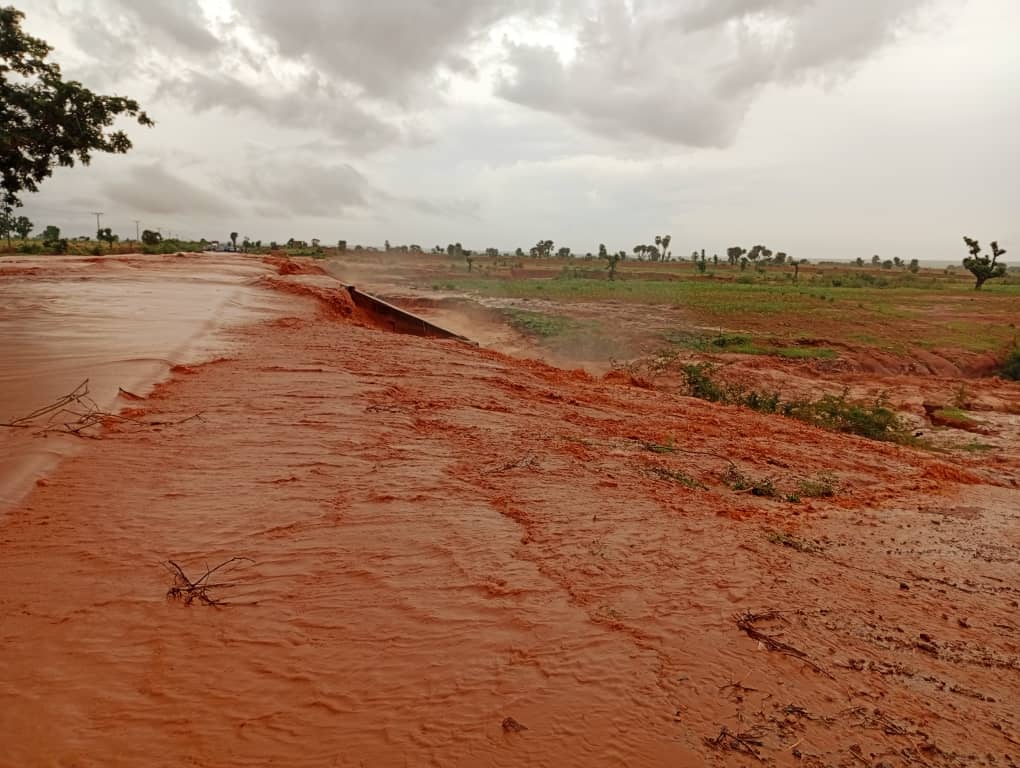
By Our Correspondent
Motorists and commuters travelling through the Gadan Oji area of Sabon Garin Kwami in Kwami Local Government Area of Gombe State were left stranded for over three hours, once again highlighting the long-standing neglect of a critical bridge that connects Gombe to major northern states.
According to Nasiru Abubakar Kwali, a commercial driver who plies the route regularly, the condition of the makeshift bridge has remained deplorable for over two decades, despite repeated appeals from road users and residents.
“This bridge has been like this for over 20 years,” Kwali said. “Today, we spent more than three hours waiting because the water overflowed and damaged the passage again. The government has continuously turned a blind eye while the people suffer.”
The Gadan Oji bridge serves as a vital link between Gombe and several major states, including Kano, Abuja, Dukku, Jigawa, Katsina, Kaduna, Taraba (Jalingo), and Adamawa. Each rainfall season, the condition of the crossing worsens, causing gridlock, delays, and in some cases, accidents.
Travellers, including women and children, were visibly frustrated as vehicles queued up on both sides of the failed portion. Some passengers were forced to disembark and walk several kilometres in search of alternative transport.
Kwali and other commuters believe the persistent neglect is a result of misplaced government priorities. “Government officials only remember us during elections. If this road connected their villages, they would have fixed it long ago,” he lamented.
He called on the federal and Gombe State governments, as well as relevant agencies like the Federal Ministry of Works, FERMA, and the National Assembly representatives from the region, to immediately intervene and construct a durable bridge that can withstand seasonal flooding.
“Enough is enough,” said Kwali. “This suffering must stop. We are not asking for luxury—just a functional bridge that ensures safe and smooth passage.”
As rainy season intensifies, residents and commuters fear the worst is yet to come if urgent action is not taken. The Gadan Oji bridge may just be one of many neglected rural infrastructures, but for those whose lives depend on it daily, it is a lifeline that has been ignored for far too long.
-
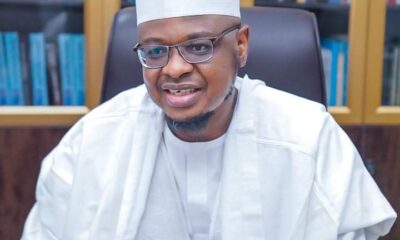
 Leadership1 year ago
Leadership1 year agoBreaking: African Union Appoints Pantami as Co-Chair of the 4th Industrial Revolution Policy Council
-
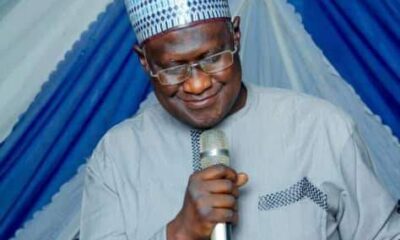
 Appointment11 months ago
Appointment11 months agoGombe State Indigene, Appointed New Vice Chancellor (ATBU)
-

 Politics2 years ago
Politics2 years agoFormer Gombe State APC Promoters Forum Chairman Attacked Following Political Commentary
-
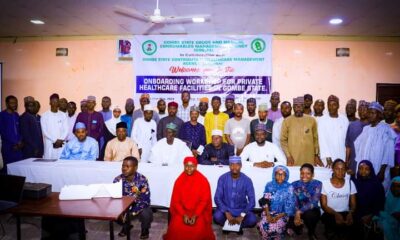
 Health1 year ago
Health1 year agoGombe State Organizes Onboarding Workshop for Private Healthcare Facilities
-
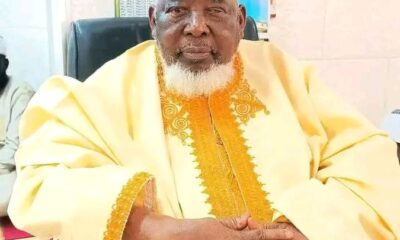
 Death6 months ago
Death6 months agoProminent Nigerian Islamic Scholar, Sheikh Sa’idu Hassan Jingir, Passes Away
-
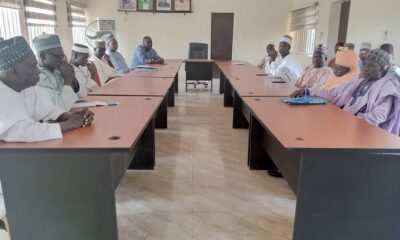
 Water1 year ago
Water1 year agoGombe Government Mobilizes Stakeholders to Combat Illegal Water Connections
-
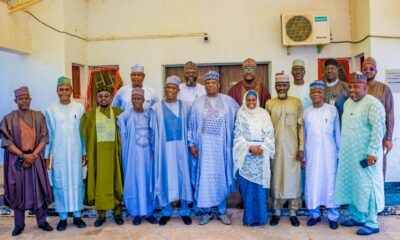
 Politics1 year ago
Politics1 year agoGombe State Inaugurates Human Capital Development Council
-
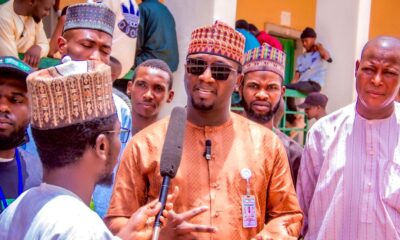
 Politics1 year ago
Politics1 year agoGombe State Launches Presidential Palliative Program (PPP) to Aid Small Businesses
